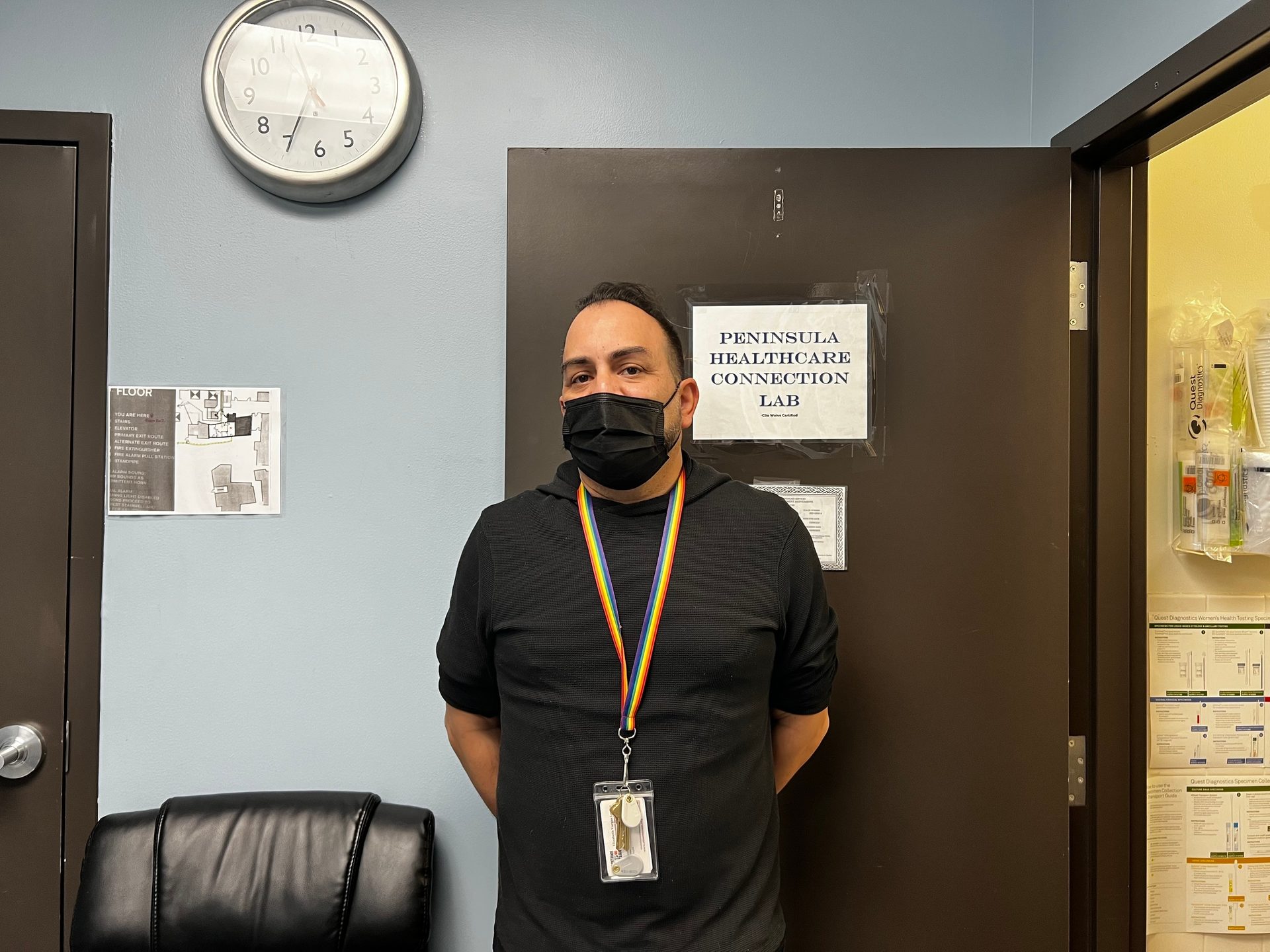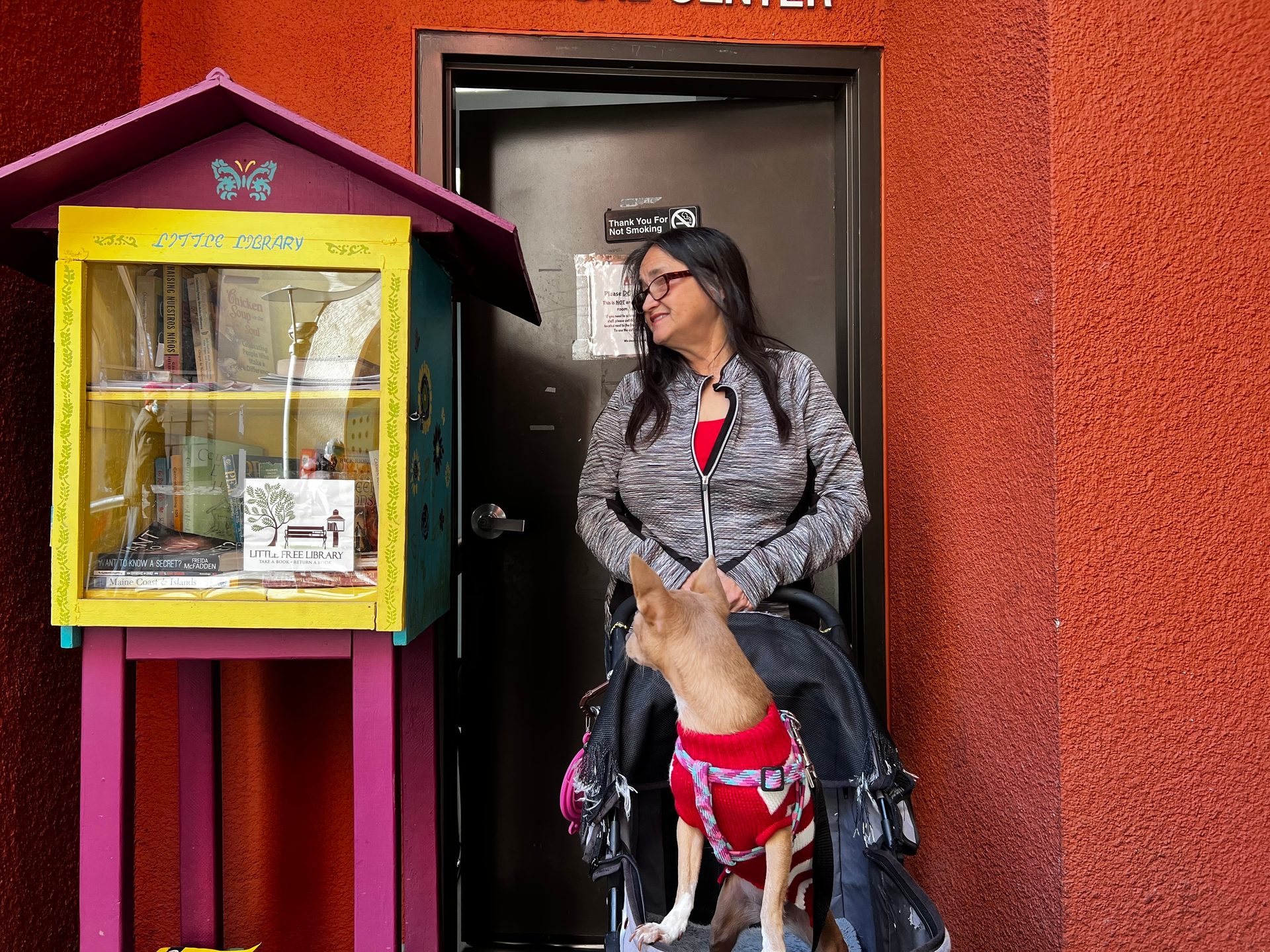Fueled by $26.6 million in state funding, the City of Palo Alto and partner organization LifeMoves are charging ahead with their plans for a new, first-of-its-kind project ...
... a project which could be pivotal, life-changing, and even life-saving for a growing subset of the local population.
HomeKey Palo Alto - a vital next step in tackling homelessness?
By Alex Dakers
HomeKey – a state-wide funding program, launched by Governor Gavin Newsom in 2020 – provides grants to cities across California to aid in the development of housing solutions for the unhoused.
This new site - the first such transitional housing project in Palo Alto - will be operated by regional non-profit LifeMoves, and is a development which the city hopes will provide ‘a dignified transitional step for unhoused residents on the path to stable housing’.
On just over an acre of city-owned land at 1237 San Antonio Road (near the Palo Alto Baylands), HomeKey Palo Alto will have the capacity to serve 408 individuals annually...
... combining temporary housing with, according to Palo Alto Mayor Pat Burt, “the social and medical support services needed to successfully transition our unhoused individuals and families to permanent housing.”
On-site work should commence early-to-mid next year, according to LifeMoves Director of Community Engagement & Public Affairs, Benjamin Biscocho.
The project is scheduled for completion by late-summer 2023.
LifeMoves noted that referrals will be made through Santa Clara County’s coordinated entry system, with priority given to Palo Alto residents.
Anyone looking for shelter can call either 211 or Santa Clara County’s Here4You hotline at 408-385-2400 to be matched with emergency shelter, and other support services and assistance.
Panoramic video view of entrance to 1237 San Antonio Rd allotment, Dec. 7, 2022: (Alex Dakers, Peninsula Press).
"Specific healthcare services are still being developed for HomeKey Palo Alto," according to Biscocho.
However, LifeMoves did confirm that their "intensive on-site supportive services" will include both physical and behavioural healthcare - with a licensed vocational nurse (LVN) available to attend to basic medical needs, and the capacity to facilitate outsourcing to primary care physicians at local clinics as required.
In addition to their planned provision of healthcare, LifeMoves' new site will offer services including family and children services, education, career and employment services, and financial literacy, legal, and benefits support.
The interim housing, meanwhile, will comprise prefabricated modular units with ensuite bathrooms, stacked two to three stories high, with access to shared cooking, laundry, and other communal areas.
In addition to the $26.6 million state HomeKey grant, the project has received an influx of funding from other sources to contribute towards both capital and operating expenses.
LifeMoves and the City of Palo Alto also say they will continue to raise additional operating funds from other private donors and foundations.
As they prepare to break ground, the need for a new site like HomeKey continues to grow...
... with the number of Californians lacking a stable place to call home increasing by at least 22,500 over the COVID-19 pandemic - up to over 170,000, per CalMatters analysis of this year's point-in-time (PIT) count.
Unfortunately, it is not just a lack of shelter that encapsulates the challenges of being homeless.
The CDC reports that people experiencing homelessness – those on the streets, in shelters or transitional housing, or regularly living in anywhere else not intended for human habitation – are placed at an increased risk of infectious diseases.
Mental illnesses, such as anxiety, depression, and post-traumatic stress disorder (PTSD), are other challenges, as well as addiction issues with drugs, alcohol or other vices.
Many also face delayed access to or lapses in care that severely worsen their health outcomes.
It is this need for healthcare access that HomeKey's on-site services will look to meet - and one existing local clinic whose work they could look to emulate in that mission is Peninsula Healthcare Connection.
Operating from LifeMoves' Opportunity Center at 33 Encina Avenue, Palo Alto, this independent 501(c)(3) clinic is staffed in part by volunteer medical staff that provide primary, preventative, and mental healthcare services.

"We are a small but mighty clinic."
Peninsula Healthcare Connection clinic and outreach manager Andrew Navarro at his clinic, Dec. 2, 2022: (Alex Dakers, Peninsula Press)
Peninsula Healthcare Connection's website states that they are currently the only fully qualified facility providing free and direct healthcare and psychiatric services to homeless and low-income residents of North Santa Clara County and South San Mateo County – highlighting the necessity of similar services being developed at HomeKey.
With a consistent increase in their annual number of ‘encounters’ in recent years, Peninsula Healthcare Connection have observed these recent state-wide increases in homelessness on a local level, too.
Navarro explained that many of the clinic's patients - similar to the intended linkage of services at HomeKey - are residents of the LifeMoves Opportunity Center, having been referred through the county:
One such patient is Patricia Perez.
"I think she saved my life."
A graduate of Le Grand High School, Perez hails from Planada, a small town in Merced County. She is also a former teacher's aide, and got her two children into the federal Head Start program.
However, a string of unstable relationships saw Perez move out to Daly City and then San Francisco, before ending up at LifeMoves' Maple Street shelter in Redwood City - homeless.
When her stay at the Maple Street transitional housing site "maxed out", Perez - with the help of her counselors - relocated to the Palo Alto Opportunity Center in August of 2008, where she has remained ever since.
The California native lives with diabetes - one of the three most common ailments faced by local homeless populations, according to Navarro, alongside heart disease and substance misuse - for which she is prescribed medication by Peninsula Healthcare Connection: a process Perez says is made considerably easier with an on-site clinic.
Andrew Navarro on the most commonly encountered health challenges in homeless populations.
However, it was the stroke she suffered in 2014 that shook Perez to her core - an ordeal for which she could not be more thankful to have had the availbility of dedicated medical services nearby.
If it wasn't for Judy [a clinic nurse at the time] recognizing the signs, I don't know where I would have been," Perez admitted.
"I think she saved my life."
Now sixty, and accompanied by loyal companion Sissy, her one-and a half year old pup, Perez voiced how important it is for those experiencing or recovering from issues associated with homelessness to have access to services like those provided by Peninsula Healthcare Connection - services that HomeKey Palo Alto will also look to provide.
"It's a godsend to me, and anybody [who] would have a program like this somewhere else would definitely benefit," she said.

Peninsula Healthcare Connection patient Patricia Perez outside the clinic, Dec. 2, 2022: (Alex Dakers, Peninsula Press)
Patricia Perez on the stroke she suffered several years ago, for which the LifeMoves Opportunity Center's on-site clinic, Peninsula Healthcare Connection, was her first port of call.
Navarro stressed that on-site resident services, nutritional training, and behavioural healthcare are just some of the vital aspects of providing holistic care for those escaping homelessness.
“Hopefully future buildings will be something like this (the Opportunity Center which houses their clinic),” the clinic and outreach manager added.
While already stepping up their own outreach efforts as they look to expand their services to "better serve" their community...
... Navarro added that, if given the opportunity, Peninsula Healthcare Connection would be open to providing supportive medical services to the new HomeKey site.
Image courtesy of Peninsula Healthcare Connection
Should HomeKey look to follow the model of Peninsula Healthcare Connection, partnerships could be struck with the likes of the Palo Alto Medical Foundation (PAMF) or Stanford Medical to receive the services of further volunteer doctors or nurses on-site.
While homelessness and the countless challenges that come with it will no doubt be difficult to extinguish in their totality, it is the hope that projects like HomeKey – working to fulfill the needs of those in society who continue to experience life without the comforts and security of a home – could provide a lifeline back to stability, and a step in the right direction.
About the images
All images and data visualizations taken or produced by Alex Dakers / Peninsula Press, unless otherwise credited.
Title slide illustrative rendering and annotated map of surrounding area with legend provided by LifeMoves.
3D illustrative renderings of proposed site layout courtesy of Charles F. Bloszies.
Final image courtesy of Peninsula Healthcare Connection.